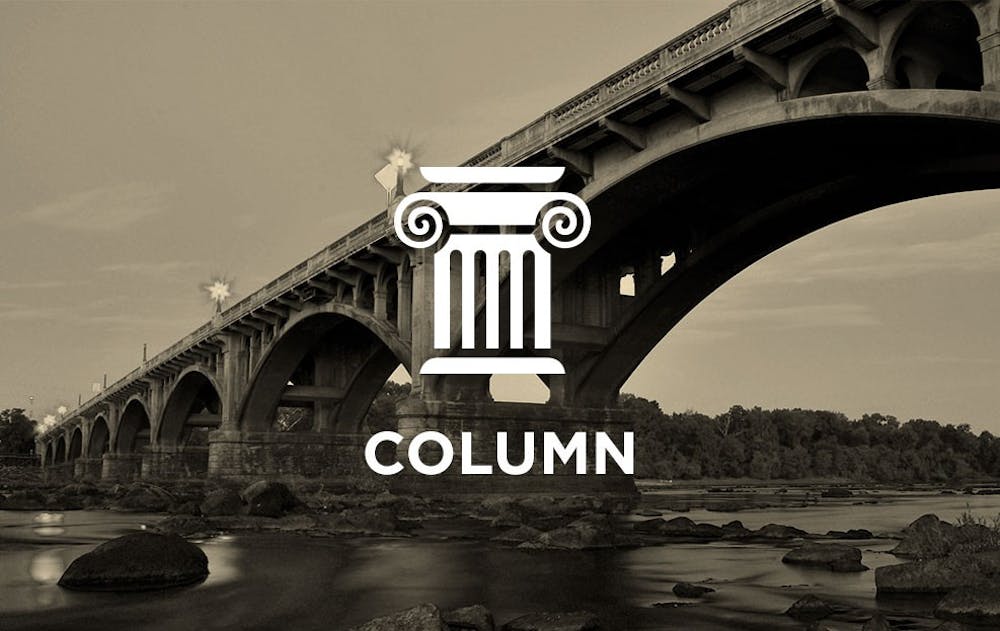Griffin Hobson’s article in the March 28 paper is a potent example of the recent phenomenon in American culture of freedom of religion being reduced to freedom of worship. In his caricaturing diatribe on conservative Christians, who he suggests are whiny bullies, he appears to problematize their complaining of oppression by pointing out statistics that remind us how Christian America still is: “Almost every United States president has been Christian, over 90 percent of congressmen are Christian, a majority of Supreme Court justices are Christian and the majority of the population are Christians.”
While this seems to me to be somewhat contradictory to the typical liberal narrative that America is no longer a Christian nation, it is reflective of the left’s attitude toward Christianity and other religions. That attitude can be described as, "You can have whatever religion you want, as long as it doesn’t mix with your politics or cause you to diverge from the mainstream political climate in any significant way." The liberal agenda seems to be in favor of allowing freedom of worship, but not necessarily freedom of religion.
That is, freedom not just to worship, but to live out your faith.
This trend has been reflected in the speeches of President Barack Obama and former Secretary of State Hillary Clinton, the current and likely future leaders of our nation, who have replaced the "freedom of religion" promised by the Constitution with a diluted “freedom of worship.” Obama went from a strong declaration in 2009 that “freedom in America is indivisible from the freedom to practice one's religion” to replacing the term with “freedom of worship” in subsequent speeches and trying to force religious organizations like the Little Sisters of the Poor to provide insurance coverage for contraceptives and drugs like Plan B against their principles.
Though Clinton stood behind her husband when he signed a religious freedom law in 1993 with broad bipartisan support, with her impeccable sense of reading her constituency, she has changed her tune. She has echoed Obama’s “freedom of worship” tactic but has also taken the implications of said statement even further. Last year on the topic of women’s health — a broad term she uses to include the contraceptives, sterilizations, and "morning after pills" religious business owners object to providing employees in their health plans — she said: “Rights have to exist in practice, not just on paper. Laws have to be backed up with resources and political will. And deep-seated cultural codes, religious beliefs and structural biases have to be changed.”
It sounds as if she is establishing a hierarchy of rights in which that of religious freedom is inferior to so-called women’s rights to reproductive services. She is attempting to build onto a tiered system for classifying rights.
While we think of the civil rights explicitly granted us by the First Amendment to the Constitution as being inviolable, there are in fact extreme cases in which some are overruled. The late Supreme Court Justice Oliver Wendell Holmes has been famously quoted as saying: “The most stringent protection of free speech would not protect a man in falsely shouting fire in a theatre and causing a panic.” The government would be justified in temporarily suspending the right to peaceably assemble if it had probable cause to believe a terrorist attack on the planned gathering was imminent. And Supreme Court cases have made clear that a Jehovah’s Witness cannot deny his or her minor child from being given a blood transfusion, despite their belief that the Bible forbids them from doing so, if it is necessary to save the child’s life. What is the common denominator between these cases in which First Amendment rights are suspended? A clear and compelling government interest in the preservation of human life.
But listing religious beliefs as an obstacle to be overcome in ensuring women’s rights to reproductive services sounds to me like Clinton is trying to add some more acceptable violations of the First Amendment to the deck. What she is getting at is that the right to reproductive services should overrule the right to refuse to provide these services for religious reasons. Similarly, the legal right to same-sex marriage is now being construed as a right to be photographed or catered for at a gay wedding that supersedes whatever religious beliefs a business owner may have on the matter.
This elevation of certain newly-discovered rights over those enshrined in the Constitution is a disturbing trend indeed. And it is a reminder that despite the continued presence of Christians in the places of governance of our society, Christians and members of other religious groups are being forced to conform to practices and provide services that are against their constitutionally-protected religious objections.
But according to Mr. Hobson, conservative Christians shouldn’t claim oppression “by claiming they have no power to begin with and that they are the real underdog heroes in a world out to get them.”
He is right on the first point, as conservative Christians still retain considerable political power, but, as the veto of the Georgia religious freedom law under enormous pressure from Hollywood, sports leagues and corporations suggests, it does increasingly seem that this world is out to get them.

